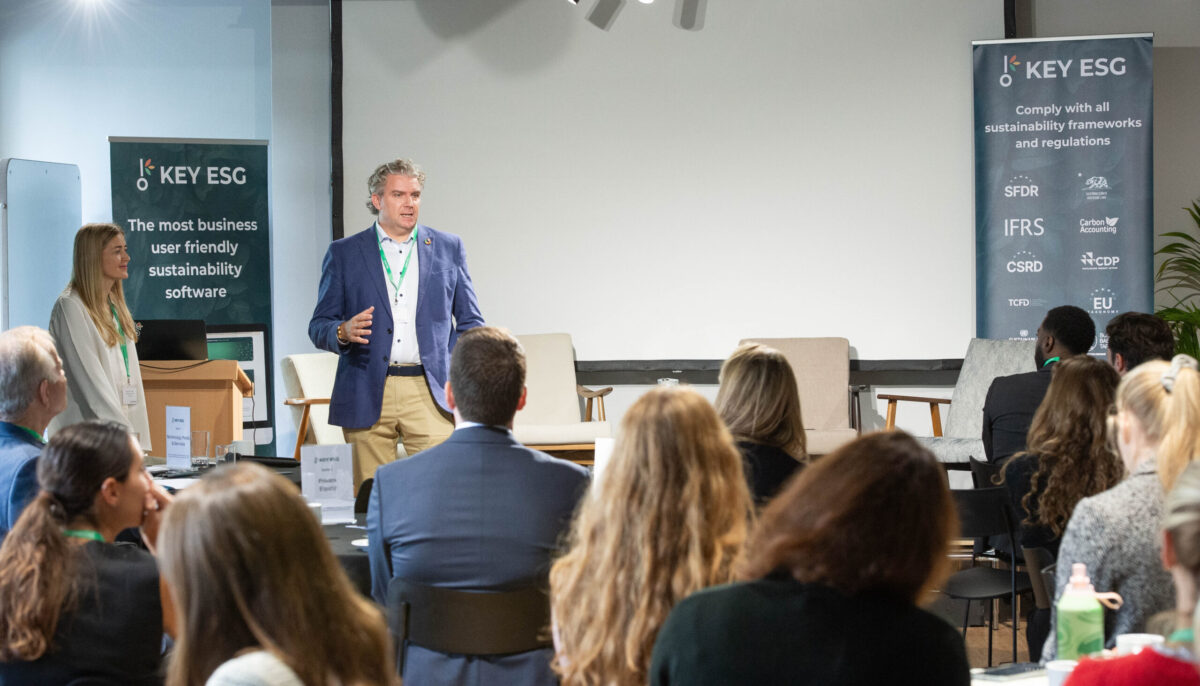On 11 September 2025, KEY ESG, a global sustainability software provider, enabling end-to-end sustainability management from data collection, reporting, analysis and improvement, hosted its Q3 Sustainability Summit, Sustainability Unlocked, in Central London. The event brought together sustainability, compliance, legal, and finance professionals from private equity, infrastructure, technology, IT services, industrials, manufacturing, retail, and food & beverage sectors.
The morning’s sessions provided insights and the opportunity to discuss amongst peers, the future of sustainability reporting, governance, and regulation, as expert speakers from legal, consultative and regulatory backgrounds offered both practical insights and forward-looking perspectives.
Reframing sustainability reporting as a catalyst for change
Sam Preece, Partner, Xynteo, led an interactive workshop designed to challenge the prevailing view of sustainability reporting. The discussion was centred around the core message: by 2026, reporting should no longer be treated as a compliance burden, but as a strategic lever for business transformation.
“Sharing perspectives and interacting with peers facing similar challenges was the key objective. With AI being so readily available to provide ‘answers’ and data, talking, sharing and testing assumptions and scenarios was a great way to give us the confidence to take action that goes beyond the existing paradigms and a cohort of collaborators and supporters should we need it.”
Sam Preece, Partner, Xynteo
Rather than simply meeting regulatory demands, companies must harness sustainability data to unlock value, accelerate innovation and build long-term resilience. Through dynamic discussions and hands-on exercises, participants explored how to turn reporting obligations into opportunities for competitive advantage.
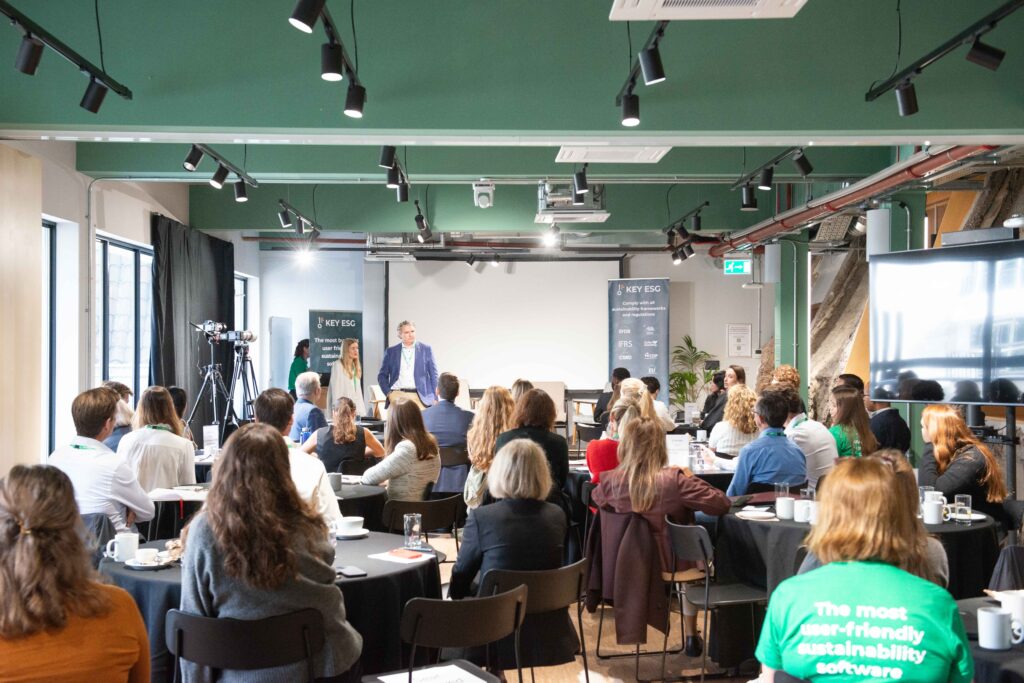
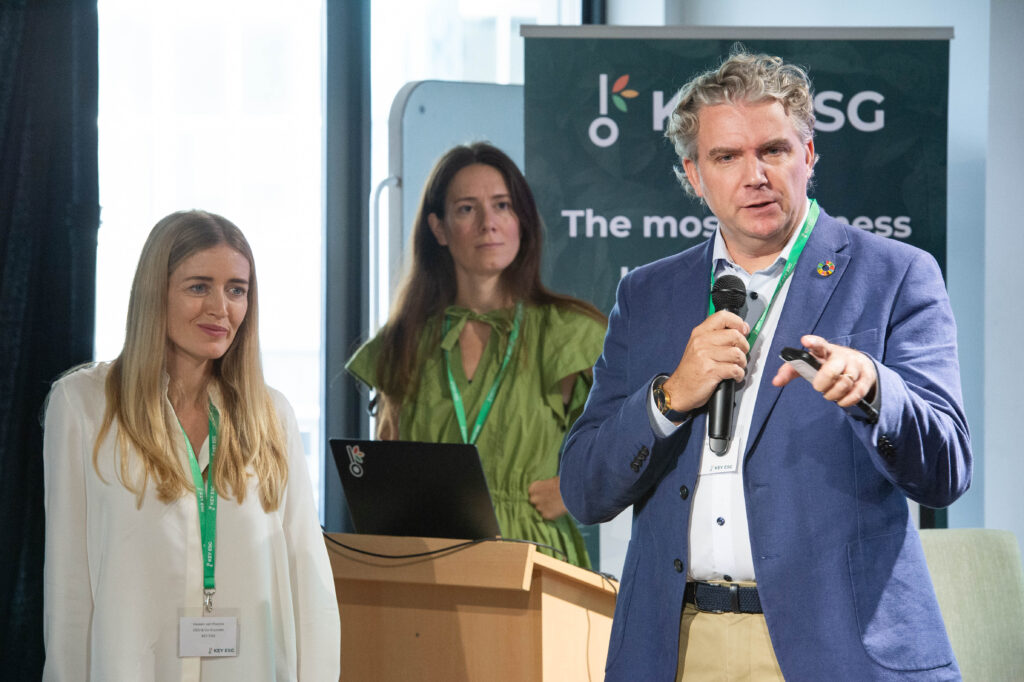
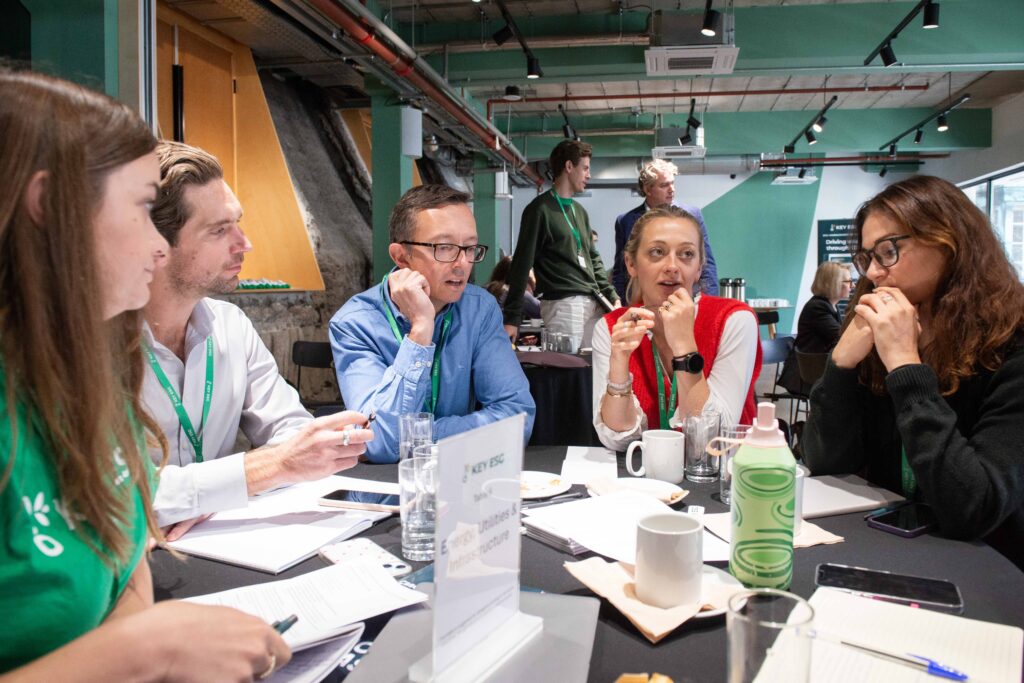
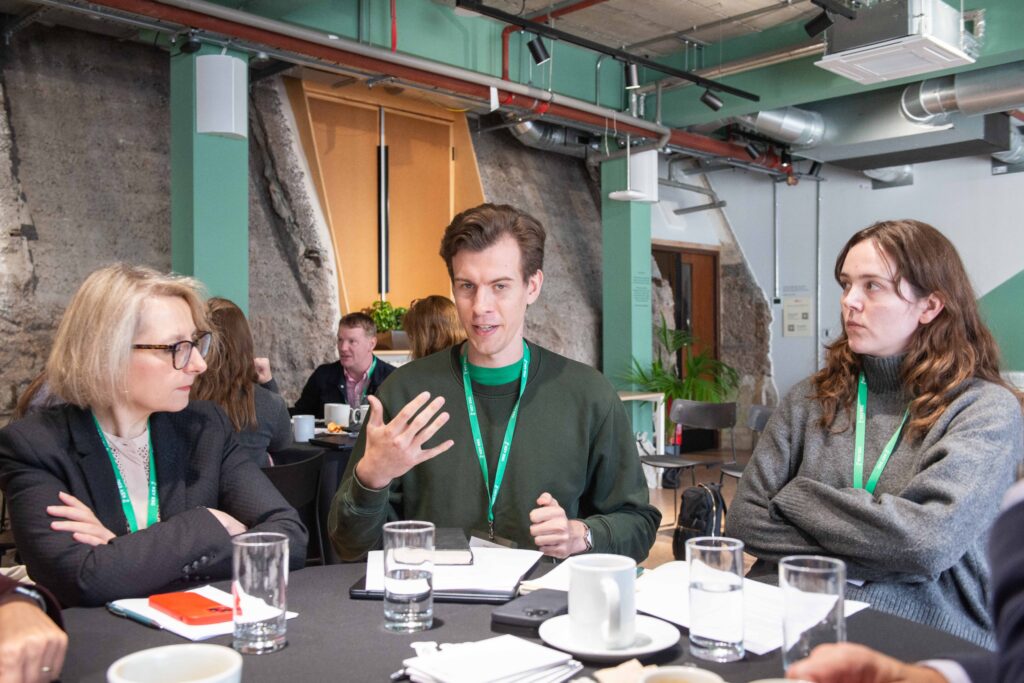
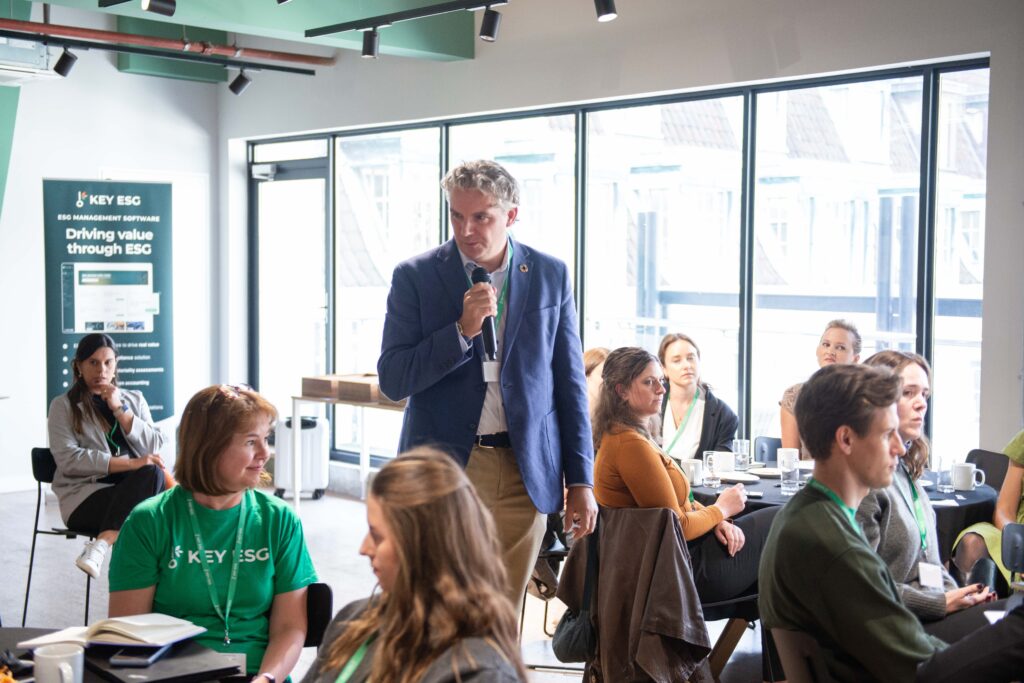
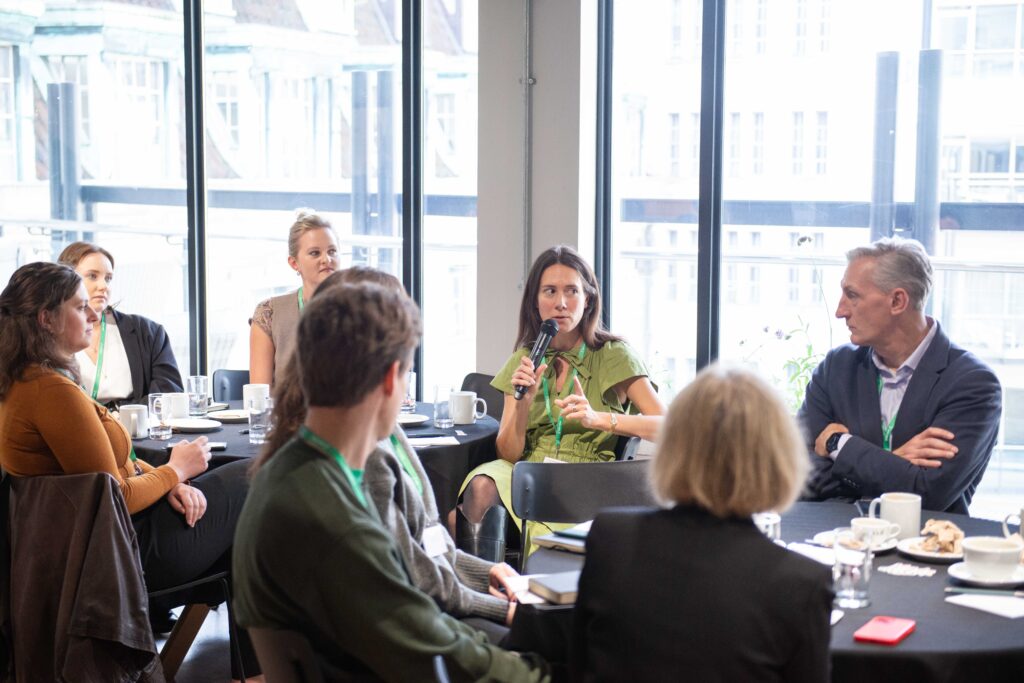
Sustainability Unlocked brought together sustainability, compliance, legal, and finance professionals from private equity, infrastructure, technology, IT services, industrials, manufacturing, retail, and food & beverage sectors.
Key learnings from the workshop
1. Harnessing AI for actionable insights
Participants agreed that artificial intelligence will be central to the next generation of sustainability reporting – AI can automate data collection, benchmark performance and even generate first drafts of reports, freeing sustainability teams to focus on decision-making and action.
KEY ESG demonstrated how its own platform utilises AI to streamline complex data flows and reporting tasks, enabling clients to allocate less time to administration and more to driving tangible impact.
2. Tackling scope 3 complexity and setting SBTi targets
The workshop highlighted the persistent challenge of calculating Scope 3 emissions, which are often the largest yet most difficult to measure. Building a robust emissions baseline is crucial for establishing credible Science-Based Targets initiative (SBTi) net-zero goals.
KEY ESG’s platform helps automate calculations across multiple Scope 3 categories, while its close partnership with the SBTi fosters knowledge sharing and more effective target setting.
3. Speaking the right language to different audiences
Discussions around the room revealed that effective communication of sustainability strategies requires tailoring the message to the audience. Some examples of this are:
- B2B stakeholders respond to the language of “value protection”, highlighting how sustainability reduces risk and preserves long-term profitability.
- B2C stakeholders often connect with evidence of employee retention and engagement, demonstrating how ESG-aligned organisations attract and retain talent.
- Different roles within the organisation are driven by different narratives regarding sustainability. The CFO, for example, wants to understand how sustainability initiatives drive cost reduction and efficiencies; the CSO responds to ESG impact metrics, while the compliance and legal teams are interested in compliance-risk and regulatory adherence.
Ensuring that you use the correct narrative for different functions across the business is critical to gain buy-in for sustainability initiatives.
4. Moving towards framework-agnostic reporting
The group recognised the frustration many organisations feel about duplication and variation across reporting frameworks, with the EU’s CSRD frequently cited as a particularly complex outlier.
KEY ESG’s platform addresses this challenge by enabling framework-agnostic reporting, identifying overlaps across standards and eliminating repeated reporting tasks—an approach that will become even more vital as global regulations continue to evolve.
Voices from the room: Real-world pain points
Participants from global organisations around the room shared common challenges:
- Data complexity and high CSRD compliance costs.
- Legislative complexity, creating pressure on already stretched teams.
- Duplication across frameworks, making reporting feel like a box-ticking exercise rather than a driver of impact.
Some of them highlighted that limited assurance requirements – intended to improve the quality of data and transparency or reporting – can backfire by encouraging companies to report as little as possible to keep assurance costs down.
The consensus: reporting and data collection should enable action, not distract from it.
How KEY ESG can help turn sustainability reporting into a value driver
To conclude the session, KEY ESG’s co-founders presented a live demonstration of the platform, designed specifically to meet the challenges surfaced in the workshop. Key capabilities included:
- Configurable and flexible architecture to suit each company’s unique structure and data needs, empowering sustainability teams to deliver insights and gain organisational buy-in.
- Interoperability across multiple frameworks, ensuring that as regulations evolve, businesses can remain compliant without duplicating effort.
- Public API integrations (in and out) for seamless data flow and real-time reporting in any business intelligence application.
- 24/7 AI-powered human support, combining instant guidance with the expertise of KEY ESG’s in-house specialists.
From compliance to strategic value
The workshop—and the Q3 2025 Sustainability Summit as a whole—revealed an emerging step-change: in 2026, sustainability reporting should be considered more than a regulatory exercise. It should serve as a catalyst for resilience, innovation, and long-term value creation.
For organisations partnering with Xynteo and KEY ESG, the message is clear: now is the time to move from compliance to transformation, leveraging AI, smarter data practices and framework-agnostic reporting to turn sustainability commitments into real business advantage.
Heleen van Poecke
CEO and Co-Founder, KEY ESG
Sam Preece
Partner, Xynteo
For further information, follow us on social media (LinkedIn I Twitter), or Contact Us to find out how we can help your leaders and organisation create people and planet-positive impact.
